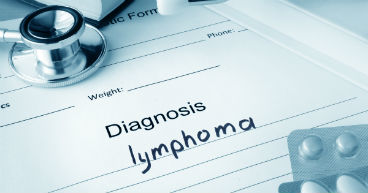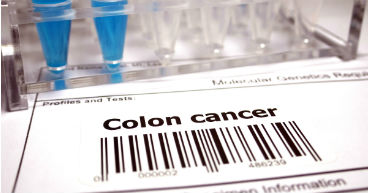
Statistics rarely tell the whole story on any topic. Case in point: colorectal cancer. The numbers tell us that the disease is the fourth-most common cancer diagnosed in the United States and the second leading cause of cancer deaths. They also tell us that the rates of new cases and deaths from colorectal cancer have fallen dramatically over the past four decades.
But these numbers only tell part of the story. While overall cases and deaths have declined, especially among older adults, colorectal cancer diagnoses have increased dramatically among young adults. An American Cancer Society report released on March 1, 2023, indicates that the rate of new colorectal cases among Americans younger than 55 years increased from 11 percent of all cases in 1995 to 20 percent in 2019. Also, 60 percent of new cases diagnosed in 2019 were advanced-stage cancer, compared to 57 percent in 1995.
This article will explore the growing concern over the rise in colorectal cases among young adults, and what Americans can do to mitigate their risk. Topics include:
- A deep dive into colorectal cancer incidence
- Potential reasons for rising colorectal cancer cases
- The symptoms of colorectal cancer
- Mitigating your risk
- Colorectal cancer treatment options
If you’ve been diagnosed with colorectal cancer and would like a second opinion on your diagnosis and treatment plan, call us or chat online with a member of our team.
A deep dive into colorectal cancer incidence
One statistic that hasn’t changed: Colorectal cancer mostly affects seniors. Fifty-five percent of cases are diagnosed in patients 65 and older.
For a variety of reasons—more people are getting screened and fewer people smoking, colorectal cancer rates have declined. Consider that from 1985 to 2019:
- New cases of colorectal cancer declined from 65 to 34 per 100,000 Americans.
- Deaths from the disease have dropped by half, from 26 to 13 per 100,000.
- The five-year survival rate increased from 58 percent to about 68 percent.
But, for younger Americans, the numbers tell a different story:
- From 1995 to 2019, new cases of colorectal cancer nearly doubled from 11 percent to 20 percent for Americans younger than 55.
- The disease has become the leading cause of cancer deaths for Americans 20 to 49 years old, according to the National Cancer Institute.
- The average age of a patient diagnosed with colorectal cancer fell from 72 in 2001-02 to 66 in 2015-19.
And while African Americans are still more likely than whites to be diagnosed with colorectal cancer, early-onset disease is affecting more non-Hispanic white Americans than African Americans.
Potential reasons for rising colorectal cancer cases
Research into the causes of early-onset colorectal cancer is robust. And while a specific cause of the concerning trend has not been pinpointed, Toufic Kachaamy, MD, Chief of Medicine at City of Hope Phoenix, says the causes are clear to him.
“It’s lifestyle,” he says. "There’s no doubt in my mind.”
Dr. Kachaamy points specifically to the modern American fast-food diet. For instance, he says, one fast food chain’s French fries contain 16 more ingredients than the potatoes, oil and salt in those you make at home.
“When did our diet become really horrible?” he asks. “It’s when our diet became industrialized. We don’t cook at home. If you make fries at home, it may not be all that healthy, but it’s still better. Nineteen ingredients—that’s not natural.”
Research suggests that a diet that includes frequent fast-food meals may affect the colon’s balance of good and bad bacteria, called the microbiome, microbiota or gut flora. Human microbiota is made of trillions of viruses, fungi and other microorganisms. Imbalances in human gut flora have been linked to autoimmune diseases such as Crohn’s disease, as well as multiple sclerosis and heart disease. While the microbiome’s role in cancer risk remains uncertain, researchers suspect poor gut bacteria may contribute to obesity, a leading risk factor for colorectal cancer.
Other risk factors for colorectal cancer include:
- Smoking
- Alcohol consumption
- Sedentary lifestyle
Some cases of colorectal cancer in young adults may also be linked to genetics, or an inherited gene mutation that may increase their risk of developing colorectal or other cancers. In fact, researchers estimate that 15 percent to 30 percent of all colorectal cancer cases in young adults may have this genetic link.
Colorectal cancer symptoms and signs
The phenomenon of early-onset colorectal cancer made headlines after the death of superstar actor Chadwick Boseman. Diagnosed with stage 3 colorectal cancer in 2016, Boseman kept his condition secret until his passing in August 2020. Boseman’s case put a face on early-onset colorectal cancer, but many other patients had been diagnosed with the disease years earlier. Some of the stories of young colon and rectal cancer patients are chronicled on the website colonclub.com, which raises awareness of these unusual cases.
Among them are:
- Holly Rochelle: She began seeing doctors in the fall of 2001, suffering from nausea, vomiting, fatigue and abdominal pain, but was misdiagnosed with a hernia. The symptoms persisted for two years before a trip to the emergency room led to a test that revealed her cancer.
- Doug Dallman: In his early 30s when he started seeing blood on his stool, Doug was diagnosed with anal fissures that would break open during bowel movements. As the bleeding persisted and pain developed, he visited a doctor, who discovered a mass in his rectum during a prostate exam. He was diagnosed with stage 3 rectal cancer.
Despite the increase in colorectal cancer rates among young adults, the disease is often overlooked in young patients. Symptoms, such as abdominal pain or blood in the stool, may be attributed to other causes, such as digestive issues or hemorrhoids.
“Also, these folks don’t get screened because they’re so young,” Dr. Kachaamy says. “So, they often come in with advanced-stage disease.”
Prompted by the increase in colorectal cancer cases among younger people, the American Cancer Society now recommends adults at average or low risk get screened for the disease at the age of 45, instead of 50, the previous recommendation.
Young Americans should be aware of the common symptoms of colorectal cancer and address issues with their doctor should the symptoms appear or persist, says Maurie Markman, MD, President of Medicine & Science at City of Hope Atlanta, Chicago and Phoenix.
“There is solid evidence of an increasing risk of colon and rectal cancer in younger individuals,” he says. “Any young adult who experiences possible signs or symptoms of colon or rectal cancer should see a health care provider for an evaluation.”
Mitigating your colorectal cancer risk
Dr. Kachaamy’s own lifestyle may serve as a model for those who want to reduce their cancer risk. His family eats meals cooked at home. He exercises six days a week. And he watches little or no television, avoiding the sedentary living afflicting many Americans.
“That’s the lifestyle that should be taught,” he says. “But many people don’t have the time for that. It’s just a matter of making it a priority, which I know is hard.”
To reduce your risk of colorectal cancer at any age:
Exercise: Even a modest amount of exercise every week, such as regular brisk walks, may help improve your overall wellness. Always check with your doctor before starting a new exercise program.
Eat healthy: A diet high in fiber, lean protein, fruits and vegetables may help promote healthy gut bacteria, which has been shown to reduce cancer risk. Eating too much red meat and processed foods may increase your cancer risk.
Maintain a healthy weight: Obesity leads to about 500,000 cases of cancer worldwide, according to a recent study. It’s also a known risk factor for many cancers, including those of the colon, rectum, breast and pancreas.
Don’t smoke: Smoking not only increases the risk of pulmonary cancers, the carcinogens in tobacco smoke travel through the bloodstream and may increase the risk of digestive tract cancers, as well.
Colorectal cancer treatment
After a colorectal cancer diagnosis, the care team will discuss your options with you and help you develop a personalized care plan tailored to your individual needs.
Your care team will use diagnostic tools and techniques to detect and accurately stage the disease. For instance, Dr. Kachaamy uses a high-tech diagnostic tool called GI Genius™, which employs artificial intelligence to help him more quickly and clearly identify polyps, adenomas and cancerous or pre-cancerous lesions in the colon. You’ll receive an individualized treatment plans based on the specific type and stage of your disease.
Because of the digestive tract’s role in processing food and waste, many colorectal cancer patients have difficulty with digestive function. That’s why nutrition therapy is a key component of colorectal cancer care.
You may also see other supportive care clinicians to manage additional disease- and treatment-related side effects, such as nausea and vomiting. These supportive care experts may include a:
- Pain management physician
- Naturopathic provider
But Dr. Kachaamy says young people with colorectal cancer often need more than just medical care or physical side-effect management. Many seek help to heal emotional scars and help to cope with their diagnosis while being at the same time students, parents and caregivers to older adults. They may require sensitivity towards issues that might be more important to them like preserving fertility, sexual health and coping with the financial burden cancer may cause.
“Young adults often have a more challenging landscape than older adults diagnosed with cancer,” he says. “When you’re 40 and get cancer, there’s a good chance that you’ve never been sick before. One day, you’re out to dinner or a party, the next thing you know, you’re on chemotherapy.”
Supportive care services such as behavioral health or spiritual support are woven into many patients’ care plans. These services may help young adults or any patient struggling to navigate a complex cancer journey, Dr. Kachaamy says.
If you’ve been diagnosed with colorectal cancer and would like a second opinion on your diagnosis and treatment plan, call us or chat online with a member of our team.


